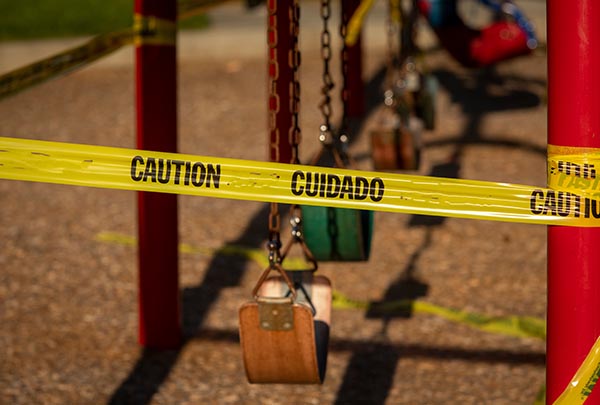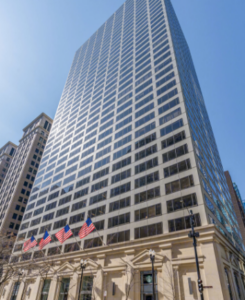Premises Liability Attorneys

Premises Liability Attorneys
Property owners have a duty to maintain a safe space for all visitors. Failure to do so can result in hazardous conditions that lead to serious injuries. If you or a loved one experienced injuries as a result of negligent property owners, don’t delay in contacting the right premises liability attorney.
Retain a Premises Liability Attorney
It’s not uncommon for negligent parties to claim that a victim’s injuries were the result of personal negligence. For this reason and many others, if you have suffered catastrophic injuries or if a loved one was killed because of a dangerous condition on another’s property, it is critical that you not speak to any insurance company representatives without legal representation.
Call (312) 201-8600 or visit our contact page to schedule your free, no-obligation consultation with our personal injury attorney. Our firm represents clients on a contingency fee basis—meaning you pay nothing unless you win.
Overview of Premises Liability Lawyer
What is Premises Liability?
Types of Premises Liability Cases
FAQs
What to Do If You Experience a Premises Liability Accident
Find the Best Premises Liability Lawyer
What is Premises Liability?
Premises liability is an extremely broad area of tort law, which involves civil claims from people injured due to another party’s conduct. Most people who suffer serious injuries on another’s property due to certain dangerous conditions may be entitled to compensation for all damages incurred from the accident, including financial, physical, and emotional losses.
Types of Premises Liability Cases
Susan E. Loggans & Associates helps people involved in a wide variety of premises liability lawsuits. Some of the most common kinds of incidents that our firm handles include, but are not limited to:
- Slip and fall
- Landlord negligence
- Dram shop
- Negligent inspection
- Amusement park accidents
- Defective surfaces
- Negligent security

1. Slip and Fall
The phrase “slip and fall” implies a certain degree of clumsiness. In many cases, property owners claim that the injured party is to blame for not paying closer attention to their surroundings. In reality, many slip and fall accidents are the direct result of third parties failing to properly maintain their property.
When a property owner is aware of an unsafe condition, any person who suffers injuries as a result may be entitled to compensation for lost wages, medical bills, and other associated costs.
2. Landlord Negligence
Landlords are expected to comply with certain requirements and maintain their premises to keep tenants safe. When a landlord or property management company fails to do so, tenants have several options, including an “injunctive relief” in certain jurisdictions, which grants tenants compensation for any damages suffered.
3. Dram Shop
In colonial times, alcoholic beverages were sold by the dram (roughly an eighth of a fluid ounce). By legal definition, a dram shop is a bar, tavern, or another establishment that sells alcoholic beverages.
The State of Illinois’ Liquor Control Act of 1934 created a cause of action against business owners for physical injuries to people, damage to tangible property, or loss of society caused by an intoxicated person. Other areas have similar laws on the books. In other words, businesses serving alcohol have a duty to stop supplying alcohol to patrons if they become too intoxicated.
4. Negligent Inspection
If you’ve had an injury occur because a property owner failed to conduct frequent inspections, you may be entitled to compensation. While property inspection requirements vary based on the type of estate, common examples include inspection of fire extinguishers and security alarms to ensure they are functional and effective.
5. Amusement Park Accidents
If an amusement park’s grounds or facilities are not maintained in a reasonable manner to prevent foreseeable injuries, owners could be liable for damages incurred by injury or death. Some cases could also involve a product liability claim, if the injury or death results from defective ride equipment or machinery.
6. Defective Surfaces
Common examples of defective surfaces include uneven pavement along walkways, missing or broken stairs, and loose floor tiles, which can easily cause bodily harm or even death if left unattended.
7. Negligent Security
When an individual is attacked or suffers serious injuries due to a property owner’s failure to secure the premises or otherwise provide inadequate security, the property owner could be liable for the victim’s medical bills, lost wages, and other damages.
Premises Liability FAQs
When is a property owner liable for the safety of invitees to their property?
A property owner is liable for physical harm caused to their guests by a condition of their property if they:
- Know, or should know, of unsafe conditions that present unreasonable risk of harm to guests;
- Should expect that guests will not discover or realize the danger on their own; and
- Fail to exercise reasonable care to protect guests from that danger.
Under Illinois law, the Restatement (Second) of Torts provides a few exceptions, including the Distraction Exception and Deliberate Encounter.
Distraction Exception
A possessor of land is not liable for physical harm caused to invitees by any activity or condition on the land whose danger is known or obvious to others, unless the property owner should anticipate harm despite the obviousness of the potential for harm.
Deliberate Encounter
If the invitee is entitled to make use of public land in which there is a known or obvious danger, it stands to reason that the property owner should anticipate the potential for harm.
Can a property owner be held liable if a trespasser was injured or killed on their property?
Generally speaking, a property owner does not have a duty of safety for anyone unlawfully entering property without permission. However, any intentional harm to a trespasser or disregard for their safety could warrant a claim in premises liability law.
Several factors come into play in determining liability, including whether the owner knew the trespasser was onsite or had advanced notice that it would be a possibility. For example, if a property owner knows that people commonly take a shortcut through their property, they could owe a trespasser a duty of reasonable care.
For more information on the duty of care for trespassers, refer to the State of Illinois’ Jury Instructions for premises liability claims.
What are the duties of care required for property owners, licensees, invitees, and trespassers?
The Illinois Civil Pattern Jury Instructions for premises liability establish different levels of duty of care for property owners and licensees, invitees, and trespassers.
Respective duties of care are as follows, in descending order:
- Absolute liability for hazardous or inherently dangerous activity;
- Highest degree of care (applies to common carriers);
- Ordinary care for the safety of any persons lawfully on the property; and
- Refraining from willful and wanton conduct to injure trespassers.
Is there a limit to the amount of compensation I can receive from a premises liability claim?
The State of Illinois’ Premises Liability Act and the Civil Justice Reform Amendments of 1995 attempted to place a $500,000 cap on compensatory damages for noneconomic injuries. The Supreme Court of Illinois, however, declared this limit as unconstitutional as a whole in its decision in Best v. Taylor Machine Works, 179 Ill. 2d 267, 689 N.E.2d 1057 (1997).
There is currently no cap on compensatory damages for noneconomic injuries.
Is there a statute of limitations for filing a premises liability claim?
In the State of Illinois, a premises liability claim must be filed within two years of the incident.
What to Do If You Experience a Premises Liability Accident
If you or a loved one experienced premises liability injuries, it’s a good idea to do the following:
- Collect visual evidence of the accident, like photos and videos, if possible.
- Document all medical expenses and other financial hardships relating to the accident.
- Avoid speaking to insurance representatives until you have retained legal counsel.
- Contact an experienced premises liability lawyer right away to avoid issues with statutes of limitations.

Find the Best Premises Liability Lawyer with Susan E. Loggans & Associates
Property owners have a responsibility to provide a safe environment for those who visit their home or business.
If you have sustained injuries or your loved one was killed on another’s property, immediately retain legal counsel. Insurance companies will be quick to provide a settlement, which will not likely include fair compensation for emotional pain and suffering, current medical expenses, projected future medical expenses, or lost wages.
Call (312) 201-8600 or visit our contact page to get in touch with our experts in premises liability claims, who will provide a free case evaluation.
